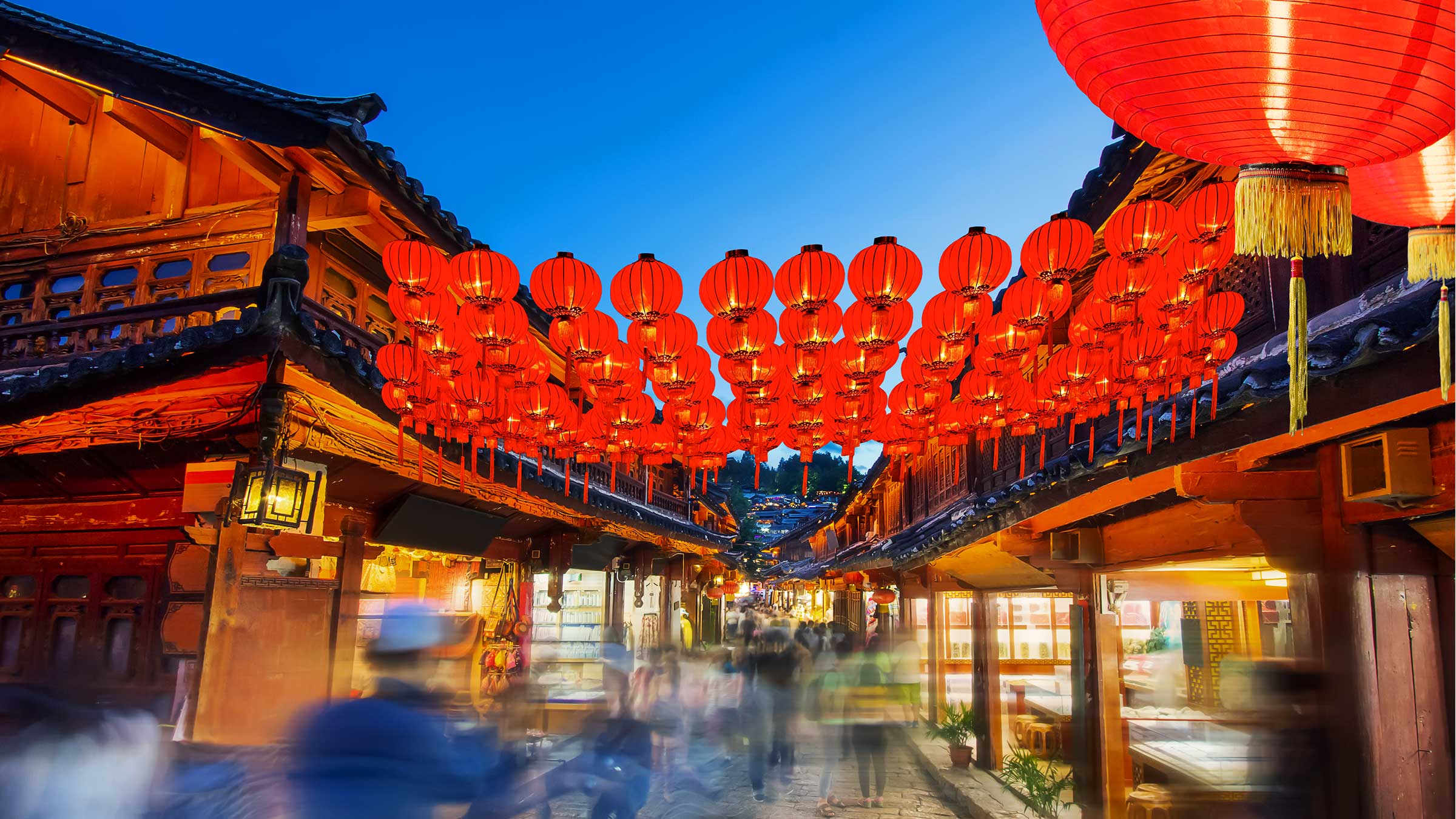Yesterday marked Chinese New Year, the highlight of Chunyun, China’s Spring Festival season. In a normal year, the event presents a golden opportunity for consumer businesses, as people around the world travel to see loved ones, eat out in restaurants and treat themselves to new products. In 2019, Chinese consumers spent a staggering $149bn during this period alone.
But the last two Lunar New Years have, unsurprisingly, looked a little different. In 2020, the event coincided almost exactly with WHO’s declaration of Covid-19 as a global pandemic, forcing millions to bring in the new year from lockdown. A year on, and the country has recovered well from the pandemic compared with its global peers, but small outbreaks in northern cities have left local authorities urging against national and international travel. For most people in China, this year’s celebrations will take place in their local towns.
This disruption will be felt across the global consumer sector. Perhaps most predominantly, the slump in travel will add to the woes of hospitality, travel and leisure operators around the world. According to a report released by the China Tourism Academy, Chinese visitors spent $135bn abroad in countries like Thailand, Vietnam and the US over the course of 2019, and the number of Chinese tourists opting to go abroad for Chinese New Year has steadily increased in recent years. Indeed, the 40-day Chunyun period is usually the world’s largest human migration, a time when more than a billion people travel thousands of miles, leaving cities to visit family in rural China or travelling abroad to one of the many nearby holiday destinations. As a demonstration of scale, the number of people travelling during Chinese New Year is seven times the number of travellers during Thanksgiving in the US. In 2020, however, the number of people traveling for the holidays plunged from 3 billion to 1.4 billion. This year, the figure is expected to grow to just 1.7 billion.
While the “celebrate where you are” messages rolled out by officials present a significant challenge to the global tourism sector, there are opportunities for local businesses to capitalise on the change of scene. Travel agencies have been offering experiential packages for residents in their local town, such as history or politics-focused walking and bus tours. Shanghai-based Spring Tours, for example, is offering 50% more local tours for this year’s Spring Festival and five times as many walking tours. Zoos, museums, gardens and theme parks have also attracted attention from local residents.
Hotels have also remained fully booked, with many locals choosing to celebrate in luxury accommodation close to home. In particular, hotel businesses in the Shanghai suburbs are offering city dwellers a chance to recreate the experience of the returning to the countryside, without leaving city limits. For operators in Europe, where lockdown restrictions set to stay in place for some time, there are certainly lessons to be learnt from our peers in Asia.
Chinese New Year is also one of the most significant dates in the luxury calendar, and travel restrictions have not stopped global brands from capitalising on the event. Nike, for instance, has reimagined its iconic high-top sneakers with graphics of popping firecrackers and artisanal Chinese knots; Apple is offering limited-edition AirPods Pros with ox emojis stamped on the cases; and the Swiss boutique Vacheron Constantin has dropped $130,000 watches with high-relief engravings of the animal.

With travel curbed, the government has pushed local destinations – such as Hainan, dubbed ‘China’s Hawaii’ – to open more duty-free malls and increase the value of luxury goods available to buy in stores. Indeed, the luxury market is booming, as restrictions on outbound travel prompt Chinese customers to spend at home, either in physical stores or online.
Many luxury brands operating in China have already doubled down on ecommerce strategies, and some are rolling out initiatives designed to engage customers from their homes. MiuMiu has launched a WeChat pop up store for Chinese New Year, for example, and Sephora has announced plans to launch a series live-streaming events to mark the event.
Like everything in the last twelve months, this year’s Chinese New Year remains highly uncertain. In London, which usually hosts some of the biggest celebrations outside of Asia, the parties, performances and food markets have been cancelled, with the London Chinatown Chinese Association creating a virtual celebration available to stream instead. Despite the dampened spirits, Chinese New Year remains an event grounded in hope and renewal. A year ago, Covid-19 felt a long way away from us in the UK. As Chinese New Year rolls round again, we should reflect on how quickly that changed – and how quickly things will change again… hopefully, this time, for the better.
Moira.benigson@thembsgroup.co.uk | @MoiraBenigson | @TheMBSGroup









